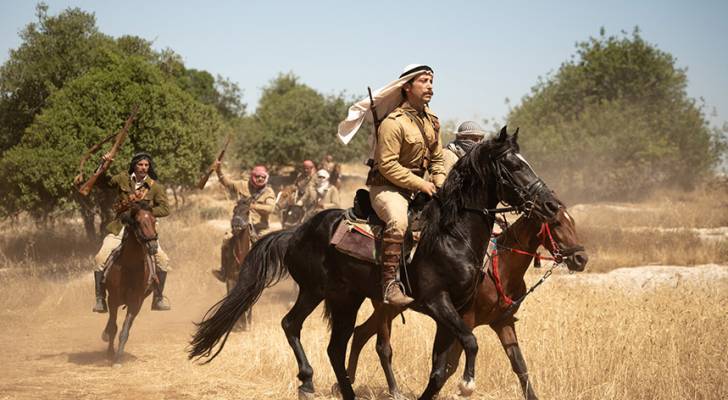Palestine 36 makes history, wins top prize at Tokyo Film Festival
Note: AI technology was used to generate this article’s audio.
Palestine 36, Palestinian filmmaker Annemarie Jacir’s sweeping historical drama about the 1936 Palestinian uprising against British rule and Jewish settlers, has won the Tokyo Grand Prix for Best Film at the 38th Tokyo International Film Festival in the Competition section. The award carries a cash prize of JPY 3 million ($19,545).
Speaking via a remote feed, Jacir said, “This award is really a great, great honor, and it means everything to my team and to myself and all of us that have worked very hard to make this film and fight for this film to come to life. Sharing it and receiving this honor is a beautiful, beautiful thing.”
Tokyo Governor Yuriko Koike said as she presented the award, “Film can transcend language and cultural barriers, and is an incredibly powerful art form with the power to connect people’s hearts. Unfortunately, divisions are occurring all over the world. Natural disasters are also raging. But film has the incredible power to heal people’s hearts.”
Read more: Annemarie Jacir's Palestine 36 earns 100% on Rotten Tomatoes
The film has also achieved a rare feat, earning a 100 percent rating on Rotten Tomatoes, with critics praising its powerful storytelling, emotional depth, and meticulous attention to historical detail.
Set in 1936, Palestine 36 follows Yusuf, a young man navigating life in his rural village and the politically charged streets of Jerusalem. As Jewish refugees flee fascist Europe, Palestine becomes the stage for a nationwide uprising against British colonial rule, reshaping the region’s destiny.
Critics have highlighted the film’s nuanced approach to a complex period in history. One reviewer wrote, "Palestine 36 shows not only the birth of the occupation, but also the birth of resistance. A gorgeous, sprawling, heartbreaking epic that shows the true history and resilience of a people who will be free."
Another critic praised its ability to juggle multiple storylines while maintaining emotional focus: "It has a lot of story to tell but still manages to draw its many characters and give specificity to its different locations. It demands the audience’s undivided attention and earns it by the end."
The film has been lauded for its humanist perspective, remaining “deeply rooted in the lives of its characters, their relationships with their community, their love for their people, and their enduring connection to their ancestral land.”
Beyond storytelling, Palestine 36 challenges Hollywood conventions. One critic noted, "Whereas so many Hollywood examples reduce this region’s story to terrorism, Palestine 36 gives it the care necessary to remind us how that label is often used by oppressive forces to maintain control."




